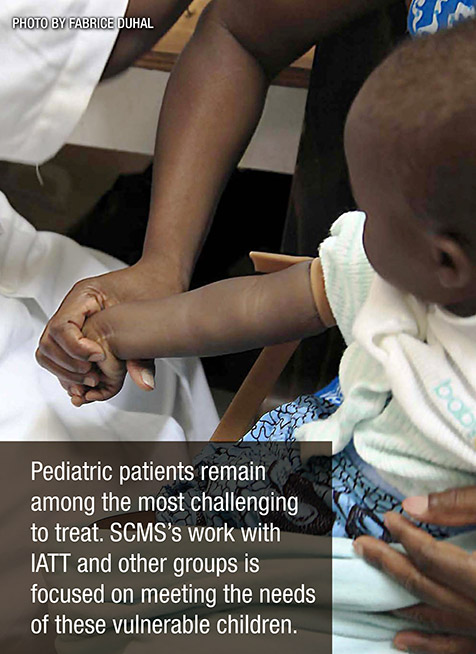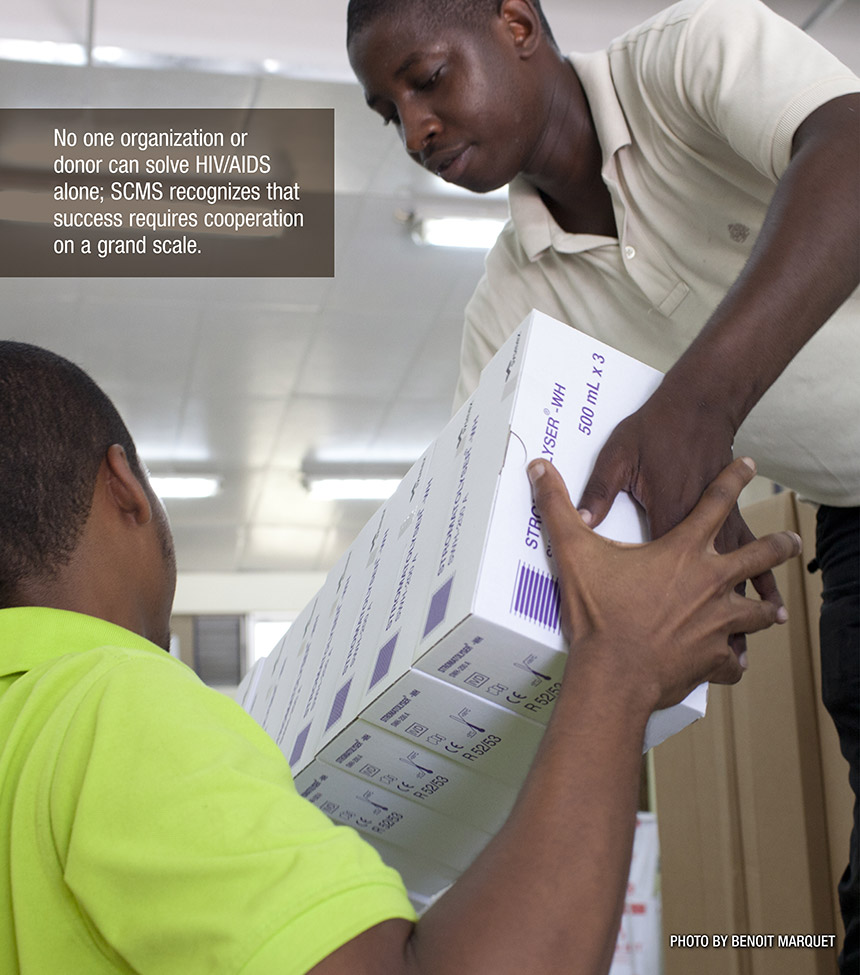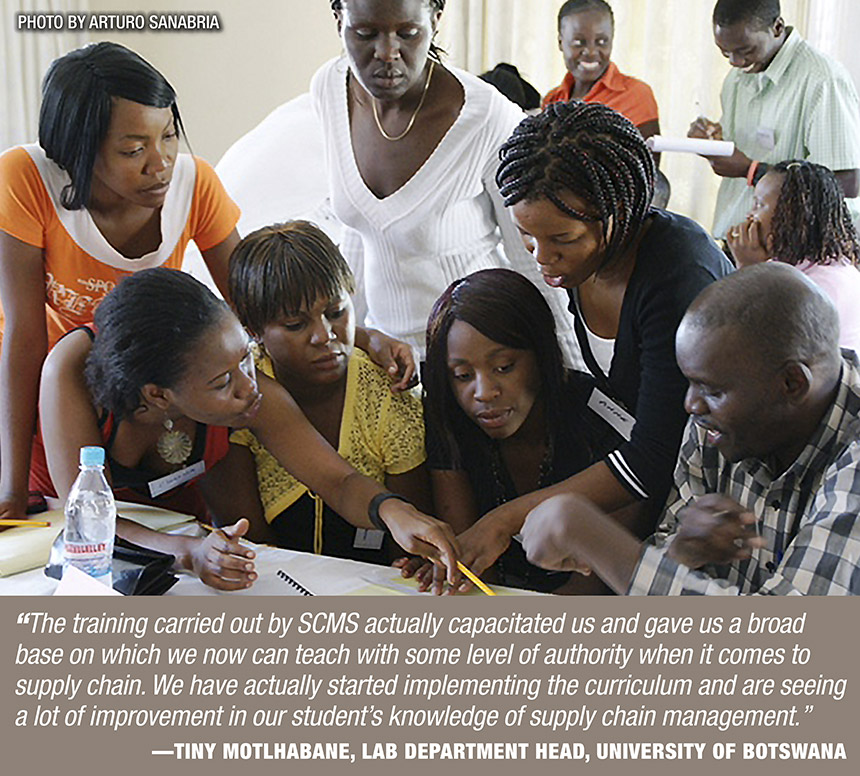Maximizing Impact
Global collaboration
Winning the global fight against HIV/AIDS requires the close collaboration of many stakeholders. The SCMS project structure, approaches, and every facet of the project’s mission depend on these partnerships. We work within this complex network of local and global players to share market knowledge, supply chain expertise, best practices, and lessons learned to increase the impact of health interventions and reach more people.

Shaping the market to scale up pediatric HIV treatment
At the request of USAID, SCMS is a member of the Inter-Agency Task Team (IATT) on the Prevention and Treatment of HIV Infection in Pregnant Women, Mothers and Children, an initiative focused on optimal products that provide quality treatment and secure supply. We have taken a leading role in creating and promoting an optimal formulary for pediatric ARVs, recommending 10 optimal products from a list of more than 60 to cover the current WHO-recommended treatment regimens. We have also contributed to a series of policy briefs alerting implementers to supply chain challenges in the pediatric ARV market.
SCMS is a founding member of the Procurement Consortium, a subgroup of the Pediatric ARV Procurement Working Group (PAPWG) established by the Global Fund to address fragmentation in the pediatric ARV market. By aggregating demand and coordinating orders and delivery of AIDS medicines for children, the consortium aligns member forecasts, engages with manufacturers and monitors country challenges to improve product availability.
Sharing procurement and supply chain information to benefit partners fighting HIV/AIDS
As an active member of the WHO AIDS Medicines and Diagnostics Service (AMDS) Network, SCMS has attended and presented at numerous global meetings and supported publication of best practices and knowledge-sharing tools. We submit pricing information for the WHO Global Price Reporting Mechanism, and ARV registration status and content for the Procurement and Supply Management Toolbox. These activities help other HIV/AIDS programs access competitive prices for the medicines they buy.

SCMS also contributes forecast data to the WHO/UNAIDS working group on ARV forecasting for global demand. Data are shared with the major manufacturers of ARVs (innovator and generics) and API producers to help them ensure manufacturing supply meets future program demand and rapid scale-up.
Working with international partners to improve laboratory services in Africa
The SCMS project was the first USAID partner to facilitate a course at the African Center for Integrated Laboratory Training (ACILT), which develops and presents hands-on training courses for front-line laboratory staff and laboratory leadership. The SCMS course is intended to create awareness in the use of logistics, forecast, and procurement data to inform the development of responsive laboratory strategies and cost-effective national work plans.
Taking a smarter, strategic approach to building and retaining the supply chain workforce
As an active member of the People that Deliver (PtD) Initiative, we contributed the project’s supply chain knowledge to PtD’s efforts to build global and national capacity for implementing evidence-based approaches to plan, finance, develop, support, and retain the national workforces needed for the sustainable management of health supply chains.
Collaborating to build workforce skills
As a follow-on to PtD efforts in Namibia, SCMS has been collaborating with the Ministry of Health and Social Services (MOHSS) and the Global Fund to scale up good inventory control and storage practices training, with the goal of improving pharmaceutical management of HIV/AIDS medicines and clinical supplies at health facilities. This activity is jointly funded by SCMS, the Global Fund, and MOHSS.

Overcoming customs challenges to ensure access
A major challenge to on-time delivery is customs delays. SCMS is collaborating with the World Customs Organization to identify and realize strategic reforms, such as the “single-window” initiative, to improve global customs processes. Through this initiative, designed to simplify and fast-track importation, all parties involved in trade and transport can submit standardized information and documents through a single entry point to fulfill import, export, and transit-related regulatory requirements. Benefits are being realized in regional trading blocs, the most apparent in East Africa. In such countries as the DRC and Ethiopia, customs turnaround times have improved significantly, with the importation process reduced from as much as three weeks to less than a week.
Facilitating a forum for information exchange among global donors and implementers
SCMS serves as the technical secretariat for the Coordinated Procurement Planning (CPP) Initiative, facilitating the CPP’s work to assist countries, donors, and implementing partners in improving procurement and supply management. CPP’s goal is to ensure continuous availability of HIV-related commodities by identifying countries at risk of supply interruption and facilitating mitigating actions. With the support of UNITAID and PEPFAR, the CPP developed the Procurement Information Exchange, an online platform that gives members easy access to commodity security data to help identify solutions for improving treatment delivery and to avert risks of stockout.